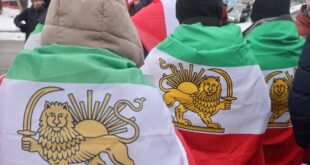The US government is escalating financial sanctions against Iran and ratcheting up pressure on Iranian companies suspected of supporting Tehran’s nuclear ambitions.US-Iranian relations deteriorated after the 1979 Islamic revolution, but have worsened since the US-led invasion of Iraq in 2003 and following the election of Iranian President Mahmoud Ahmadinejad two years ago.
US President George W. Bush claims Iran is racing to develop nuclear weapons, something that Tehran, which has signed the Nuclear Non-Proliferation Treaty, denies.
Iran says its nuclear programme is peaceful, although Ahmadinejad has predicted Israel’s destruction.
As tensions have flared, the world’s superpower has brought its financial and economic firepower to bear on Iran, moving in part to cut off Tehran’s access to the global financial system.
The US Treasury and other government agencies have blacklisted and applied asset freezes against at least 15 Iranian entities so far this year.
“We believe that there is a real potential that these sanctions will have the effect of changing the government of Iran’s mind about the defiant policy it is currently pursuing,†Stuart Levey, the treasury’s undersecretary for Terrorism and Financial Intelligence, told AFP.
The United Nations has also invoked sanctions against Iran over its refusal to halt uranium enrichment, which can be used to construct a nuclear bomb.
American companies and invididuals are barred from doing business with blacklisted Iranian firms and Washington hopes other countries will step up such actions.
Most of the Iranian entities targeted by the US this year, including the Atomic Energy Organisation and the Mesbah Energy Company, operate in the nuclear, energy and industrial industries.
But Iran’s banking sector is also in Washington’s sights, as well as Iranian groups it says fund “terrorist†organisations such as Hizbollah, the Lebanese-based Shiite political group.
The Treasury blacklisted Iran’s fifth-largest state-owned bank, Bank Sepah, in January, claiming it had funded weapons proliferation, including a Chinese firm’s sale of “missile-related items†to Iran in 2005.
Several Japanese banks reportedly cut ties with another Iranian bank, Bank Saderat, after it was blacklisted last September. Swiss bank UBS ceased its business activities in Iran last year.
US lawmakers are also becoming more critical of Iran’s nuclear quest. But some experts are skeptical.
“I don’t think if the assets of a few Iranian officials are frozen or if the state of California and the state of New York decide to divest from Iran, suddenly the regime will buckle and say ‘we’re going to change our nuclear approach’,†said Karim Sadjadpour, an Iranian researcher at the Carnegie Endowment for International Peace.
 Eurasia Press & News
Eurasia Press & News



